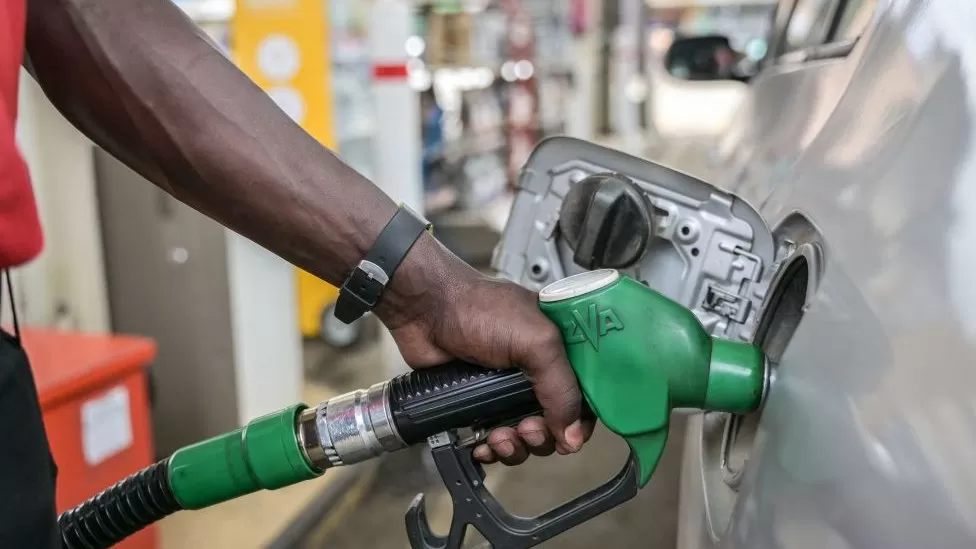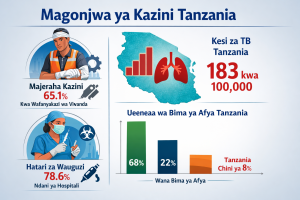
Regional Common Market Aspiration Showing Cracks as Uganda Sues Kenya Over Oil Imports?
The East African Community Secretary General reaffirmed the regional bloc’s commitment to fostering integration and collaboration in his New Year address citing the implementation of the EAC Customs Union and Common Market Protocols to increase intra-trade. This comes at a first-of-a-kind moment where Uganda sued Kenya in the East African Court of Justice following a licensing row on the importation of fuel products to Kampala. At the heart of the dispute is Uganda’s contention that Kenya’s refusal to grant access to the Kenya Pipeline Company (KPC) infrastructure is a violation of the principles outlined in the EAC Customs Union and Common Market Protocol.
The East African Community, comprising eight member states – Burundi, Kenya, Rwanda, South Sudan, DR Congo, Somalia, Tanzania, and Uganda – has been working towards deepening economic integration through the establishment of a Customs Union and a Common Market. These initiatives are designed to promote the free movement of goods, services, and people across the region, fostering economic growth and development.
Uganda intended to utilize the infrastructure for its national oil company, the Uganda National Oil Company (UNOC) to import fuel products directly. Additionally, Uganda claims that Kenya is impeding UNOC from operating as an Oil Marketing Company (OMC) within Kenya’s borders. Kenya Pipeline Company handles at least 90% of the fuel cargoes destined for Kampala with the land locked country importing an estimated 2.5 billion liters of petroleum product annually valued at Ksh302.34 billion.
Implications for the EAC Customs Union
The EAC Customs Union aims to eliminate tariff barriers and promote the free movement of goods within the region. However, the Kenya-Uganda dispute highlights the challenges associated with non-tariff barriers and regulatory hurdles that hinder the seamless flow of goods. For the Customs Union to function effectively, member states must adhere to the agreed-upon protocols and facilitate the smooth movement of goods, as envisaged in the EAC integration process.
The dispute raises questions about the commitment of member states to the principles of the Customs Union and the need for a mechanism to address disputes promptly even as the bloc continued to admit new members. The EACJ’s involvement underscores the importance of having a legal framework to resolve conflicts and uphold the integrity of regional agreements.
Implications for the EAC Common Market Protocol

The EAC Common Market Protocol goes beyond the elimination of tariff barriers and envisions the free movement of services, capital, and labor. The dispute between Nairobi and Kampala introduces a new dimension, as it involves restrictions on the operation of UNOC as an OMC within Kenya. This contradicts the spirit of the Common Market Protocol, which encourages cross-border investment and business operations. Uganda has in the past accused Kenya of causing fuel product inflation by up to 58% creating the costliest pump prices in the region.
The inability of UNOC to operate freely in Kenya raises concerns about the practical implementation of the Common Market Protocol. Member states must ensure that their national regulations align with the regional framework to facilitate a conducive environment for businesses to operate across borders. As the EAC secretariat pursues increased integration and implementation of the common market protocol, such heightened relations raise concerns on the willingness of member states to participate in the framework.
Fueling Regional Integration
The weight of the current conflicts rests on the established East African Court of Justice (EACJ) deliver justice, address the Kenya-Uganda dispute and establish a precedence for handling similar conflicts on the future. While Africa and the EAC have a poor record of cross-border litigation, this will serve as a litmus test for the region to amicably handled and settle trade-related disputes towards improved regional integration and enhance inter-EAC trade.
The conflict equally presents a challenge for all EAC members states on their capacity to engage in continuous dialogue to harmonize national regulations and facilitate the implementation of regional agreements. A collaborative approach is crucial in building trust among member states and fostering a conducive environment for economic integration. Currently, there are lingering questions on the preparedness of the EAC secretariat to rise above political tensions between member states towards enhancing the implementation of the EAC common market protocols.
The Kenya-Uganda petroleum dispute serves as a wake-up call for the East African Community to reevaluate the effectiveness of its integration mechanisms. The success of the EAC Customs Union and Common Market Protocol relies on the commitment of member states to adhere to agreed-upon principles and facilitate the smooth flow of goods, services, and investments. The resolution of this dispute will not only impact bilateral relations but also set a precedent for addressing future challenges to regional integration within the East African Community.
Muoki Musila is an Kenyan based economist. These are the writer’s own opinions and do not necessarily reflect the viewpoints of Liberty Sparks. Do you want to publish in this space? Contact our editors at [email protected] for further clarification.



